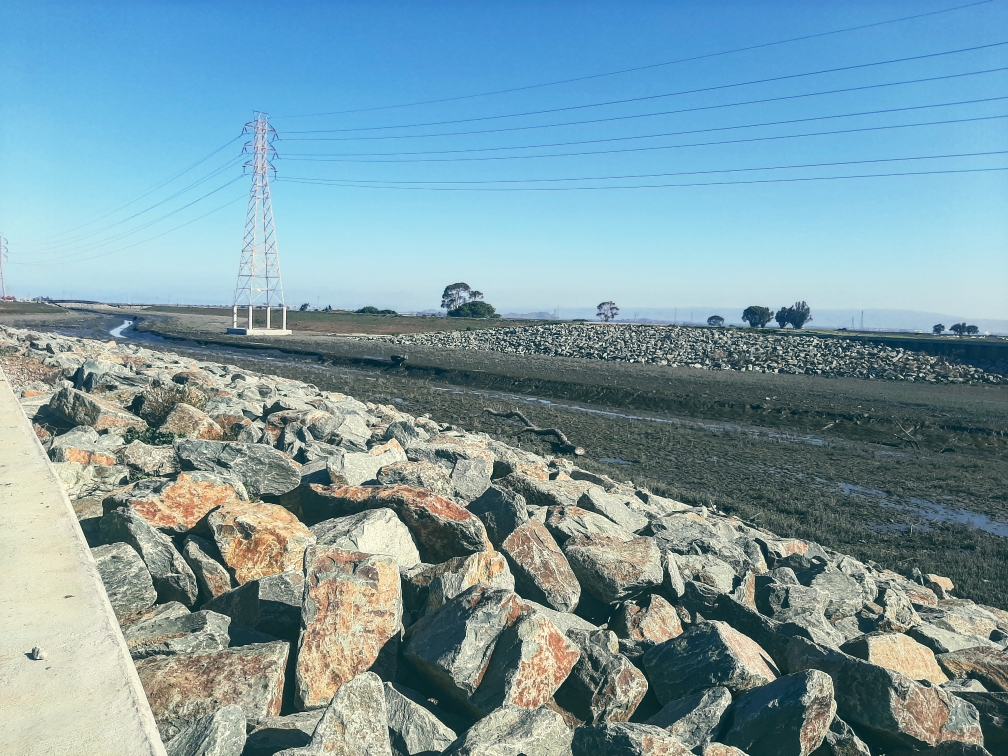A Changing Tide: The San Francisquito Creek Flood Reduction, Ecosystem Restoration, and Recreation Project
Story by Maddie Ginn

Just as our world is changing rapidly in the wake of climate change, restoration strategies to protect and perpetuate our communities, towns, cities, and environments must change also. Our team at Central Coast Wilds (CCW) native plant nursery and at Ecological Concerns Inc. have worked diligently to do just that for the San Francisquito Creek Flood Reduction, Ecosystem Restoration, and Recreation Project. We are proud to be a part of a changing tide with floodplain mitigation and riverbank revegetation we completed in response to predicted sea level rise in the area. As a result of our project, 7,000 tidal marsh and marsh transition plants have been replanted along several reaches of the river at the city limits of Palo Alto and East Palo Alto.
The species selected for this project were chosen to support inundation from the San Francisco Bay tides twice daily on the preexisting floodplain surfaces. Ambrosia psilostachya, Artemisia douglasiana, Euthamia occidentalis, Limonium californicum, Salicornia pacifica, and Symphyotrichum chilense propagules were collected from areas nearby the project site (site-specific propagule collection) in a separate contract. These propagules were then delivered to CCW for propagation, where specially trained staff grew them out to beautiful, well rooted plants ready for their final destination. We are thankful for our continued partnership with Valley Water to promote pest and disease free plants for our restoration projects. All of the plants for the San Francisquito project were grown in our CalPhytos, High Phytosanitary BMP nursery. Production in this nursery requires strict protocols including heat-treatment of all soil media, comprehensive documentation of all BMP processes, specialized BMP-trained staff, and stringent sterilization and cleanliness protocols for all propagules at every stage of production.
As these plants were chosen for their resilience in saturated and inundated soils, it is especially important to ensure that we are preventing the spread of dangerous pathogens into the watershed. One of our strategies towards ensuring this was the case is through pear-bait testing. Prior to being delivered to the site these plants were tested and analyzed by the California Department of Food and Agriculture as one last quality-control check prior to outplanting. Click here to read more about how our nursery performs pear-bait testing. Once the nursery staff received the go ahead from our team at ECI, we carefully loaded these plants onto a sterilized delivery truck. ECI crewmembers then implemented field-specific Phytosanitary BMP’s to outplant these carefully nurtured plants onto the restoration site. We are excited to see how these plants fare in the upcoming years, and the valuable ecosystem services they will provide.
The link below has more information on the production protocols we follow here at CCW:http://www.suddenoakdeath.org/welcome-to-calphytos-org-phytophthoras-in-native-habitats/#nursery

























